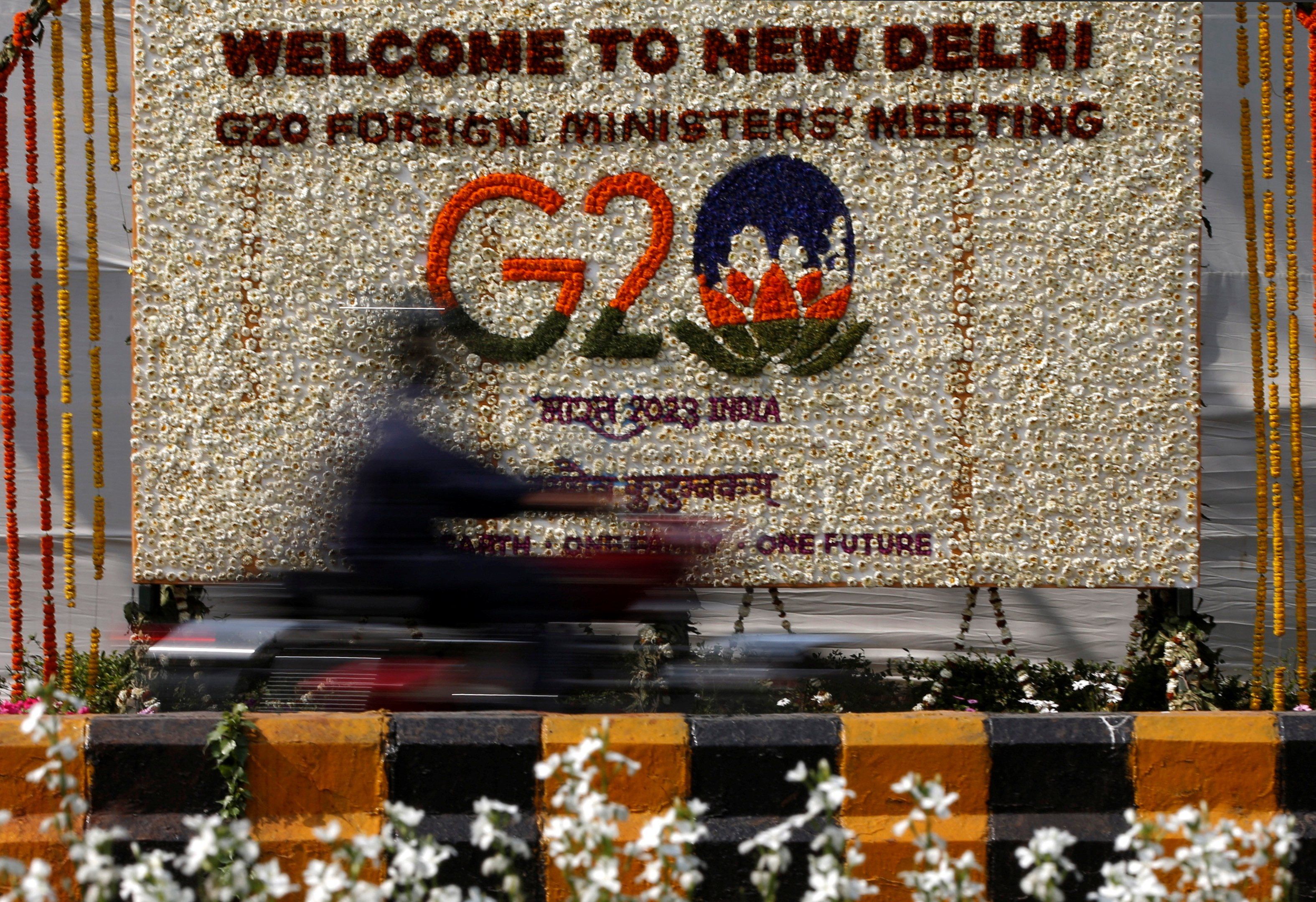What We’re Watching: Tense G-20 talks in India, Finland’s fence-building, China’s economic activity, Chicago’s mayoral runoff
An awkward G-20 summit in Delhi
When G-20 foreign ministers met in New Delhi on Thursday, it was, as expected, an awkward affair. While India, the current G-20 chair, had hoped that the bloc would focus on issues of importance to the Global South, like climate change and the global food crisis, the agenda was disrupted by US-Russia bickering over the war in Ukraine, which US Secretary of State Antony Blinken called "unprovoked and unjustified war", while Russian Foreign Minister Sergei Lavrov blamed the West for not doing enough to extend a deal to allow Ukrainian grain exports that will soon expire. Of course, focusing on anything else was going to be a tall order when the top diplomats of the US, China, and Russia were all in the same room. (President Biden and Xi Jinping last met at the G-20 summit in Bali in November, though there was no bilateral meeting between the US and Russia.) In a sign of how fractured Washington's relationship remains with these two states, Blinken on Wednesday again urged Beijing not to send lethal weapons to Russia and canned China’s peace plan for Ukraine. As for US-Russia relations … need we say more? India, which has gone to painstaking lengths to maintain its neutral status over the past year, says it thinks the group can get stuff done. But at a meeting last month of G-20 financial heads, the group couldn’t even agree on a joint statement.
Finland builds a border fence against Russia
Rakentaa se aita! That's Finnish for "Build that fence!" — which is what Finland plans to do to protect its borders from Russian draft dodgers. Construction of a 10-foot tall wall, ahem, fence began this week along Finland's 800-mile border with Russia, with the first section expected to be finished by June. The Finns want to stop Russians from entering after fleeing the draft to fight in Ukraine, a number that could rise if Vladimir Putin orders another mobilization in the coming months. Meanwhile, Finland's parliament on Wednesday overwhelmingly approved the government's plan to speed up the process to join NATO — ideally along with Sweden, a fellow Nordic, if Turkey ever backs off. Going back to the fence, parts of it will have all the bells and whistles — night-vision cameras, lights, and loudspeakers — that former US President Donald Trump could only dream of for his partially built "Big, beautiful wall." And like Mexico, you can bet that Russia won't pay for it.
Chinese economic activity rebounds
China's official manufacturing sector purchasing managers’ index — a closely watched indicator of economic activity — reached 52.6% in February, expanding at its fastest monthly pace in over a decade. What's more, home sales rose for the first time in two years amid a persistent property-sector slump. The good: The two figures beat expectations and are a clear sign that the world's second-largest economy is recovering quicker than expected after abruptly ditching zero-COVID. The bad: The starting point was very low, as China's GDP grew last year by only 3%, barely half of what the ruling Communist Party had targeted. The ugly: While this is excellent news for Xi Jinping and a global economy that's eager for both more Chinese demand for stuff and more Chinese capacity to make stuff, economic activity has yet to reach pre-pandemic levels. Also, China's economy is still facing strong pressure from the fallout of the US-China rivalry, with American companies feeling increasingly bearish about the future as ties between Beijing and Washington get icier.
